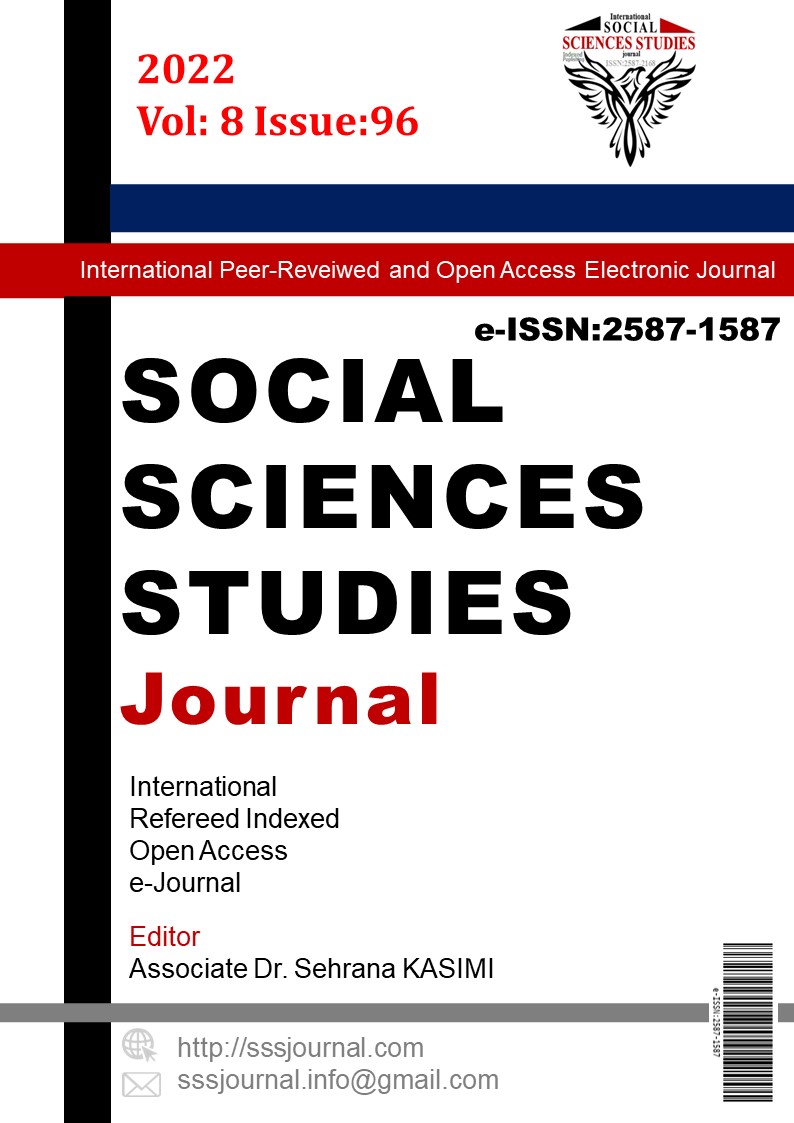Author :
Abstract
Refah rejimleri, devletlerin vatandaşlarına refah hizmetlerini sunmak için kullandığı yollara bağlı olarak yapılan bir gruplandırma işlemidir. Söz konusu işlem ülkelerin ya da grupların uluslararası düzeyde karşılatılmasına ve belli başlı dinamiklerinden dolayı yaşanan dönüşüm sonucunda gruplar arasında “yakınlaşma-uzaklaşma” hareketinin analizine yardımcı olmaktadır. Refah rejimlerinin mesnedi kalıntı-kurumsal yaklaşımına dayanmakla birlikte aynı zamanda evrensel-seçici, karma model, ailenin rolü, dekomüdüfikasyon, cinsiyet odaklı tasnifler gibi birçok kriter kullanılmıştır. Olgunlaşmamış model kriteri ise söz konusu kriterlerden farklılaşmaktadır ve sosyal haklardan vatandaşların eşit şekilde yararlanıp-yararlanmamasıyla başka bir deyişle vaadedilen hizmet sunumlarının gerçekleşip gerçekleşmemesiyle alakalıdır. Dolayısıyla olgunlaşmamış model kriteri devletlerin hizmet sunuş biçimi tercihinden ziyade hizmetlerin vatandaşlara sağlanıp sağlanamaması durumudur. Söz konusu durum temel hak olarak kabul gören sosyal hakların sağlanması da devletlerin “hukuk devleti” özelliğine dayanmaktadır. Olgunlaşmamış model özelliği genel olarak Güney Akdeniz refah rejimiyle özgülenmiş olsa da düalist farklı refah rejimlerinde bulunan ülkelerde de görülmektedir. “Olgunlaşmamış model” kriteri bir üst kriter olarak düşünüldüğünde genel kabul edildiğinden daha kapsayıcı olduğunu ortaya koymak çalışmanın amacıdır.
Keywords
Abstract
Welfare regimes are a grouping process based on the ways that states provide welfare services to their citizens. The groping process enables the helps to compare country policies at international level and also supports the anlysis of the convergence-divergence movement among the groups as a result of transformation with some dynamis.While the basis of welfare regimes residual-institutional approach many criterias, sucah as universal-selective approach, mixed role, role of family, decommodification and gender oriented classifications have been used for grouping process.The immature model criteria differs from the others which is about the support of social rights to citizens equally or not in other words whether the promised service deliery is realized or not. Therefore the critertia of immature model is whether the servives are served the services equally rather than preference of the government service delivery way. The aforementioned situation is based on the “law state” feature of states where provision of social rights which are accepted as basic rights. While the immature model feature is genereally accepted as Southern Mediterranean welfare regime, Turkey is also accepted, countries having a dualist structure are not only seen in this group. When immature model criteria is considered as an upper criteria, the aim of the sudy is to evulate this group more compeherensive than it is accepted.
Keywords
- Aspalter, C.:“The Development of Ideal-Typical Welfare Regime Theory”, International Social Work, s.54 c.6, 2011, ss.735–750.
- Bozkurt, N.:İşletmenin Kara Deliği Hile Çalışan Hileleri, Alfa Basım Yayım Ltd.Şti. 2009, ss.60-111.
- Deacon, B.:“Eastern European Welfare States: The Impact of The Politics of Globalization”, Journal of European Social Policy, c.10, S.2, 2000, ss.146-161.
- Fleury, S.: “The Welfare State in Latin America: Reform, Innovation and Fatigue”, Cad. Saúde Pública, 2017, c.33, s.2, e00058116.
- Franzonı, J. M.: “Welfare Regimes in Latin America: Capturing Constellations of Markets, Families, and Policies”, Latin American Politics and Society, c.50, S.2, 2008, ss.67-100.
- Gal, J.: “Is there an Extended Family of Mediterranean Welfare States?”, Journal of European Social Policy, 2010, s.20 c.4., ss.283-300.
- Gough, I.: “Welfare Regimes in East Asia and Europe”, Katherine Marshall, Olivier Butzbach, New Social Policy Agendas for Europe and Asia: Challenges, Experience, and Lessons, The World Bank, 2003, ss.27-42.
- Gough, I.: “Social Assistance in Southern Europe”, South European Society and Politics, c.1, S.1, 2008, ss.1-23. Lacey, Nicola, Therioes of Justice and The Welfare State, Social&Legal Studies, 1992, ss.323-324.
- Leıbfrıed, Stephan “Towards of a Europan welfare state?”, New Perspectives on the European Welfare State in Europe (Ed: CatherineJones), Roudledge, London, 1993, ss.128-129.
- Orensteın, M: “Postcommunist Welfare States”, Journal of Democracy, c.19, S.4, 2008, ss.80-94. Önsal, N.:Endüstri İlişkileri Sözlüğü, Türkiye İşçi Sendikaları Konfederasyonu, 2011.
- Rawls, J., Theroy of Justice (Revised Edition),The Belknap Press of Harvard University Press Cambridge, Massachusetts,1999.
- Sodaro, M. J.: Comparative Politics: A Global Introduction, McGraw-Hill Higher Education, 2007. Spıcker, P.: The Welfare State: A General Theory, Sage Publications, 2000.
- Taşçı, F.: “Refah Devleti Modelleri İçinde Türkiye’nin Pozisyonu: “Yaşlı Algısı” Üzerinden Değerlendirmeler”, İnsan ve Toplum, c.3, S.5, 2013, ss.5-35.
- Wılensky, H.L.: The Welfare State and Equality, Berkeley University of California Press, 1975, s.1.
- Wood, G., Gough, I.: “A Comparative Welfare Regime Approach to Global Social Policy”, World Development, C.34, S.10, 2006, ss.1696-1712.





